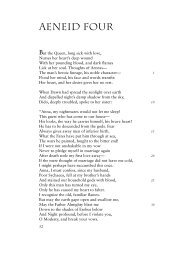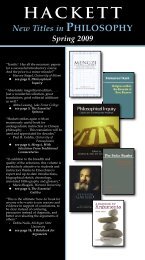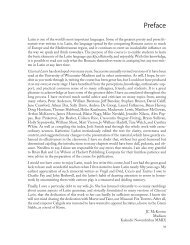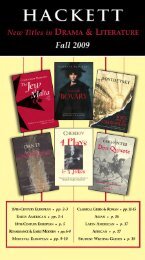Study and Discussion Questions for Early Buddhist Discourses
Study and Discussion Questions for Early Buddhist Discourses
Study and Discussion Questions for Early Buddhist Discourses
- No tags were found...
Create successful ePaper yourself
Turn your PDF publications into a flip-book with our unique Google optimized e-Paper software.
<strong>Study</strong> <strong>and</strong> <strong>Discussion</strong> <strong>Questions</strong> <strong>for</strong> <strong>Early</strong> <strong>Buddhist</strong> <strong>Discourses</strong>Chapter Thirteen: Discourse on the Threefold Knowledge (Tevijja Sutta)<strong>Study</strong> <strong>Questions</strong>1) What is the nature of the dispute between Vāseha <strong>and</strong> Bhāradvāja?2) Explain the Buddha’s initial response to Vāseha’s question, that none of these Brahmins (ortheir teachers) have seen Brahmā face-to-face. How is this like the simile of the blindfollowing the blind?3) Explain the Buddha’s second objection—that these Brahmins <strong>and</strong> their teachers see the samesun <strong>and</strong> moon as others do. How is this like the simile of the man who claims to be inlove with the most beautiful girl in the country? How is this like the simile of the manbuilding a staircase <strong>for</strong> a mansion he knows nothing about?4) The Buddha offers several more similes/analogies to the situation of these Brahmins relatingto a person’s attempts to cross a river. Briefly summarize these.5) What are the five characteristics of sensual desire? Why are these considered “bonds” or“fetters” to spiritual achievement?6) What are the five obstacles? How do these hold a person back from spiritual goals?7) In what ways are Brahmins different from Brahmā, according to the Buddha, making unionwith Brahmā unlikely?8) In what ways is a bhikkhu who lives the holy life similar to Brahmā, according to the Buddha,making union with Brahmā likely?9) What are the most important elements of living the holy life, according to the Buddha?Include a description of the four highest <strong>Buddhist</strong> virtues.<strong>Discussion</strong> <strong>Questions</strong>1) The dispute between Vāseha <strong>and</strong> Bhāradvāja appears to assume that only one religiousteacher or one religious doctrine can be right. But is there only one path to salvation?Could religious truth be plural, as sometimes described by the analogy that there aremany paths that reach the top of a mountain?2) Is the Buddha right to question the religious claims of the Brahmin sages who have not seenBrahmā face-to-face? On what basis should religious teachers claim authority <strong>for</strong> theirdoctrines?3) The Buddha’s criticism of the Brahmin sages suggests a strong rebuke of the dogmatism in theBrahmin (Hindu) teachings. Is dogmatism justified in the case of religious beliefs?4) Knowledge of the three Vedas was at the center of the Hindu tradition at the time of theBuddha. Brahmins who possessed such profound, spiritual knowledge were thought tohave the keys to salvation. Many other religious traditions also place ultimatesoteriological importance on the knowledge of sacred texts—often construed as theprecise word of God. Is the knowledge <strong>and</strong> underst<strong>and</strong>ing of sacred texts essential to









